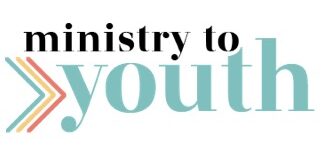Why You’re a Not a Good Small Group Leader
Written by Aaron Helman
Youth pastors usually aren’t the best small group leaders. Here’s why.
Here’s something funny I’ve discovered about youth ministry. It seems that the more I improve my speaking and leadership skills…
…the worse and worse I become at leading small groups.
It’s something that I’ve noticed, and it’s something that I’ve tried to correct, but I’m just getting worse at it as I go.
And here’s the thing: I’m not the only one.
I’ve spoken with dozens of youth workers who started off as rock-star-level small group leaders who now feel ineffective when they’re in those same small groups.
Want to learn how to fix it? Start by learning why it happens.
1. Students see you as the sage on the stage.
If you’re regular speaking or teaching in a large group format, your students will begin to identify you as the person with the answers.
That’s an intimidating person to be in a small group with.
If students get accustomed to you being the person who delineates between right and wrong answers, expect them to be afraid to speak their hearts in a small group setting.
In order to combat this, you’re going to have to help your students understand that you don’t know everything and that sometimes your small group with wrestle with questions to which you don’t have clear answers.
2. You’re too familiar with your own curriculum.
I write my own youth ministry curriculum, and so, by the time I’m in my small group, I’ve spent 5-7 hours thinking about the questions and content that I’m presenting.
That puts me on wildly unequal footing with my students. They’ve literally just heard an idea seconds ago; I’ve been thinking about it for a week.
If a student struggles to articulate his thoughts while I’m able to generate a valid, coherent idea; that’s just because I’ve had more time to think about it…
…but the student will think it’s because I’m really smart, and by association, that he’s not.
3. We struggle with awkward silences.
If you spend a lot of time putting together programs, you know how much effort you spend trying to avoid awkward, unscripted silence.
Totally scripted, reflective silence? That’s cool.
But awkward silence? That’s bad.
Problem is, a small group is full of awkward silences. It has to be.
Students who are presented with a new idea need time to think about it before they can formulate a response, sometimes as much as ten to fifteen seconds.
Our problem? We try to jump in to rescue the room after five to seven seconds of silence, long before our students have had all the time they needed to think.
Alright, so if you know that you have flaws as a small group leader, what do you do about it?
Which of these three issues best describe how you might lead a small group? Now that you’re aware of them, what’s going to change?
Here’s what I did to deal with each of those things:
1. Be intentional about admitting what I don’t know.
2. Challenge students to ask me an off-the-wall question designed to let them see me taken off-guard.
3. Count to fifteen in my head before rescuing the room from silence.
How about you? Are you going to try any of these? Let me know in the comments.
 Aaron Helman is on a mission to end youth worker burnout by providing the training and resources that you haven’t been taught… until now. Smarter Youth Ministry exists to help you learn how to manage their time and resources better so that you can do more ministry with less frustration. All of that having been said, you most likely know him as the creator of “Lamentation or Taylor Swift Lyric.”
Aaron Helman is on a mission to end youth worker burnout by providing the training and resources that you haven’t been taught… until now. Smarter Youth Ministry exists to help you learn how to manage their time and resources better so that you can do more ministry with less frustration. All of that having been said, you most likely know him as the creator of “Lamentation or Taylor Swift Lyric.”

